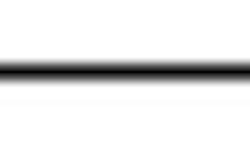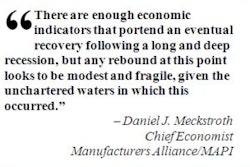Cash is king, whether the economy is in boom or bust, and that reality has put a premium today on companies' ability to drive improvements in how they manage accounts receivable and payable (A/R and A/P) in order to better manage their cash position. At Future Electronics, the Pointe Claire, Quebec-based distributor of semiconductors and electronic components has achieved significant efficiencies in its A/R process that have driven cost savings to the bottom line while also improving the company's overall cash management and its risk management.
Money on the Table
Senior executives at a variety of companies clearly have cash management on their minds these days. In fact, nearly 95 percent of the Global 1000 companies that participated in a recent study by consultancy REL viewed cash flow optimization as critical, and most were pursuing cash initiatives in three or more of the key cash areas of receivables, payables, spend management and inventory optimization.
"Even companies with strong brands, reliable customers and good products can be hit hard by a prolonged and unexpected cash crisis," says Mark Tennant, president of REL, which is a division of The Hackett Group, in commenting on the study, "Blueprint for a Cash Culture." "Fear may be receding as the global economy begins to improve. But with shrunken sales and smaller margins, it's tougher than ever for companies to protect themselves from cash risks. Unfortunately, many companies simply don't know how to do this."
The findings from REL's "2009 Working Capital Survey" bear out Tennant's last assertion. The 11th annual survey of working capital performance by the top 1,000 U.S. public companies did show that, at a high level, U.S. firms improved their working capital performance by 6.4 percent in 2009 against the prior year. However, REL calculated that U.S. companies still have $776 billion of cash unnecessarily tied up in working capital, which represents 33 percent of their total working capital scope (defined as the sum of receivables, inventories and payables).
Increasing A/R Efficiencies
CJ Wimley, executive vice president of corporate solutions with solution provider SunGard AvantGard, notes that cash management is particularly critical when credit is tight and companies are trying to minimize the need to turn to lenders. "One of the greatest sources of funds for organizations is their own trade receivables, and they need to be focused on getting those collected in a timely manner, according to the terms of the original business agreement between buyer and supplier," notes Wimley, whose company offers software and processing solutions for financial services, higher education and the public sector.
Future Electronics has been working with SunGard's AvantGard Receivables solution, which drives automation, workflow and collaboration across the order-to-cash cycle to help companies improve their A/R processes. Privately held Future Electronics is a leader and innovator in the distribution and marketing of semiconductors and passive, interconnect and electromechanical components, and the company experienced rapid growth over the past 10 years, expanding to about 170 locations in over 40 countries.
The company's brisk expansion presented two challenges for its credit department, according to Joe Prudente, vice president of worldwide credit for Future Electronics. First, the company's credit staff was challenged to handle increased business without adding headcount. While only 1-2 percent of receivables were disputed in any given month, the company's high volume of business still meant that thousands of disputes had to be managed monthly, and that figure would only rise as the business grew. In addition, rapid growth left the company with inconsistent A/R processes and policies across the various geographic regions in which it operated. "We were growing at a 25-30 percent clip every year, and as we got bigger, the inconsistencies became a bigger problem across our credit departments," Prudente says.
Prioritizing and Standardizing
Future Electronics initially tapped SunGard's AvantGard Receivables for its North American operation. The solution includes a rules engine that categorizes customers based on credit risk. Through a link to the company's homegrown enterprise resource planning system, the solution is able to review incoming orders to check the customer's credit status and either approve the order or kick it out so that a staff member, for example, can check with the customer to determine the status of a payment before a decision is made to ship or not. The solution also drives standardized collections processes to the level of sending out consistent e-mails or letters to customers, or telling collections staff whom to call each day and what "script" to use in interactions with customers. By prioritizing and standardizing the A/R process, Prudente reports that Future Electronics reduced its headcount by 56 percent while trimming past due A/R by 30 percent in the first year in North America.
Following the North American rollout, Future Electronics expanded the SunGard deployment to Europe and Asia. That was important in order to drive consistency in how the company interacted with its customers on a global basis, Prudente says. "At times we would maybe have a customer on credit-hold in one region but be doing a high volume of business with that same customer in another region," he says. "Or our analysis for the same customer might be different in different regions, resulting in varying credit lines across geographies. AvantGard Receivables helped us become more consistent from a collections standpoint and roll up the receivables into one view." In Europe, that has translated into a reduction in the company's 61-day past due percentage from 1.15 percent to 0.43 percent, and its 30-day past due percentage from 6 percent to 1 percent. In Asia, same metrics went from 6 percent to .01 percent, and from 19 percent to 1 percent, respectively.
Overall, Prudente says that moving to the AvantGard Receivables platform allowed him to reduce his staff by more than half, going from 165 to 77 globally, even as the company grew rapidly. Perhaps as important, having the solution in place helped Future Electronics in the face of the recent recession. "Half the battle is knowing who you have to be concerned about. In the old days, we were constantly getting hit by surprises," he says. "With the new system in place, as long as we're managing the processes well, there are no surprises. And that definitely helps in a down economy."















![Pros To Know 2026 [color]](https://img.sdcexec.com/mindful/acbm/workspaces/default/uploads/2025/08/prostoknow-2026-color.mduFvhpgMk.png?ar=16%3A9&auto=format%2Ccompress&bg=fff&fill-color=fff&fit=fill&h=135&q=70&w=240)